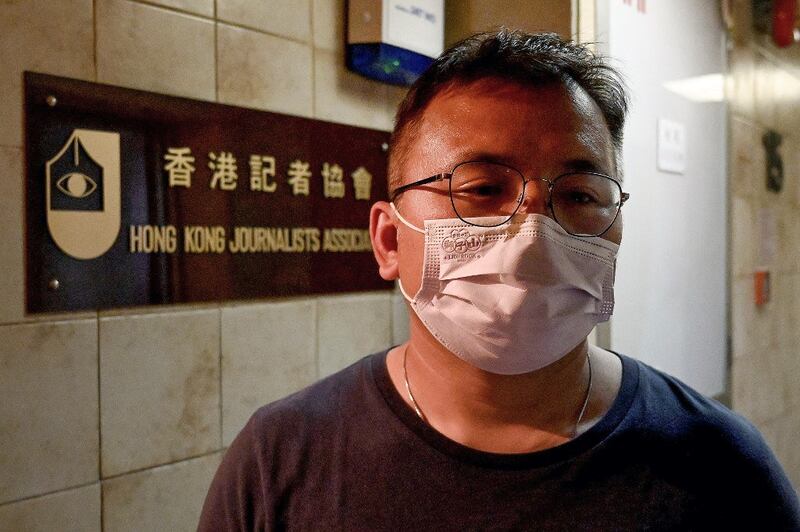Journalists in Hong Kong have hit out at criticism of a colleague in the pro-Chinese Communist Party (CCP) press after she asked a question about complaints procedures following a medical accident involving staff from mainland China.
The NowTV reporter asked the question about how the public can complain about medical malpractice by healthcare workers from mainland China at a news conference on March 16, prompting the pro-CCP Ta Kung Pao newspaper to denounce her as "spreading hatred," claiming "public outrage" at her question.
"The Hong Kong Journalists' Association (HKJA) deeply regrets this criticism of journalists who are just doing their job, and expresses concern about the phenomenon," the HKJA said in a statement on its website on Thursday.
It linked the incident to an increasingly harsh climate for press freedom after the CCP imposed a draconian national security law from July 1, 2020 banning public criticism of the government.
"In the post-national security era, the Hong Kong media is in crisis -- even when it comes to asking questions of officials," the organization said. "The HKJA would like to remind all sectors of the community not to ... speculate on journalists' motives or political stances without evidence."
It said the point of journalists' questions is to enable officials to better explain their policies to the public, and noted that the Hospital Authority had addressed the question not just once but twice i their replies.
"[Their] answers were clear and direct, affirming the value of the question," it said. "The ability of journalists to ask questions on issues of social concern without fear is an important basis upon which the media plays the role of the fourth estate."
It said the apology by NowTV had muddied the waters, and "regretted" that it had been issued.
NowTV's statement said the station was "deeply sorry" for any unhappiness caused by its reporter's question, which had also been asked by members of the city's Legislative Council on the same day.
"We are very grateful for the selfless support of the central government ... as the pandemic enters its fifth wave," it said. "We will continue to humbly accept monitoring and criticism from the public."

The opposite of journalism
HKJA chairman Ronson Chan said NowTV's apology had complicated matters.
"Hong Kong has changed," he said. "It's not what it used to be."
"I can't speculate whether the TV station was put under huge pressure to make that statement ... or whether it genuine thought it was supporting medical assistance from mainland China, and really did believe its reporter behaved inappropriately."
"If the latter is true, that it's the opposite of what we think journalism should be," Chan said.
NowTV's apology came days after Hong Kong national security police threaten Hong Kong Watch, a London-based rights group, with prosecution for calling for sanctions against Chinese and Hong Kong officials, and tried to order it to take down its website.
The police said in a letter to Benedict Rogers that he should "immediately cease engaging in any acts and activities in contravention of the national security law or any other laws of Hong Kong."
The group has been highly critical of the CCP's rights record in Hong Kong, particularly following a city-wide crackdown on pro-democracy activists, opposition politicians and journalists under the national security law.
In January 2022, security chief Chris Tang said the law would clamp down on media outlets deemed to have played an "inflammatory" role, citing the now-shuttered pro-democracy Apple Daily newspaper, which is now subject to an investigation under the national security law, with several of its top journalists and founder Jimmy Lai awaiting trial for "collusion with a foreign power."
Tang said the paper's closure had made Hong Kong "more democratic," accusing it of fomenting a "color revolution" during the protest movement of 2019, which began as a mass popular protest against plans to allow extradition to mainland China, and broadened into demands for fully democratic elections and greater official accountability.
Tang and other officials have claimed that the protests meant that "targeted measures" are now needed to combat "fake news."
Translated and edited by Luisetta Mudie.
